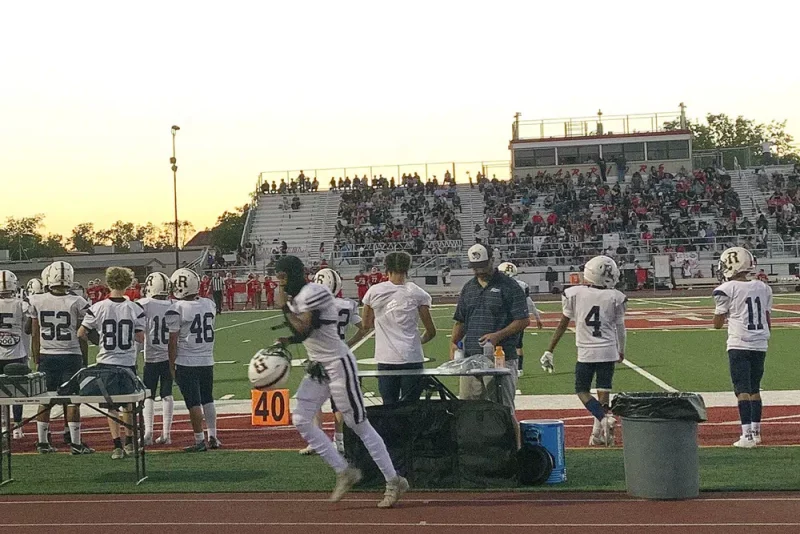High school football incidents spark racism talks, programs
Share
Explore Our Galleries
Breaking News!
Today's news and culture by Black and other reporters in the Black and mainstream media.
Ways to Support ABHM?
By Cliff Brunt, Associated Press

Superintendent Torie Gibson felt she had no choice but to make the unpopular decision. When learning Amador High’s football team had a group chat titled, “Kill the Blacks,” filled with derogatory language and racial slurs, she ended the Northern California school’s varsity season.
That meant the 100-year anniversary game between rivals Amador and Argonaut was called off.
“We canceled the football season, and we did it for all the right reasons because the behavior is not acceptable,” said Gibson, who oversees the Amador County Unified School District. “However, football is an extracurricular activity. It is not a given. It is not a right. It is strictly extra.”
The discipline was swift and abrupt. Moments before Amador was to play Rosemont — a predominantly Black and Latino school in nearby Sacramento — the game was called off.
There was more fallout. Amador’s football coach, athletic director and principal were put on leave.
In Gibson’s mind, the discipline was the easy part. The hard part will be setting the table for real change, and the key will be presentation. The school is based in a mostly white, rural area an hour’s drive east of Sacramento. Amador has just four Black students out of about 750.
[…]
The incident at Amador was one of several alarming examples of racism against Black people that occurred this fall in high school football around the nation. Athletes in the past were able to leave racism and other issues off the field, but today not even sports settings are immune from real world problems.
Administrators in some cases have used these incidents to start conversations about race that have been hard for them to bring up before and roll out programs they hope will have lasting impact.
Find out more about these events and discussions.
Normalized racism may be why some Black athletes struggle with identity.









Comments Are Welcome
Note: We moderate submissions in order to create a space for meaningful dialogue, a space where museum visitors – adults and youth –– can exchange informed, thoughtful, and relevant comments that add value to our exhibits.
Racial slurs, personal attacks, obscenity, profanity, and SHOUTING do not meet the above standard. Such comments are posted in the exhibit Hateful Speech. Commercial promotions, impersonations, and incoherent comments likewise fail to meet our goals, so will not be posted. Submissions longer than 120 words will be shortened.
See our full Comments Policy here.